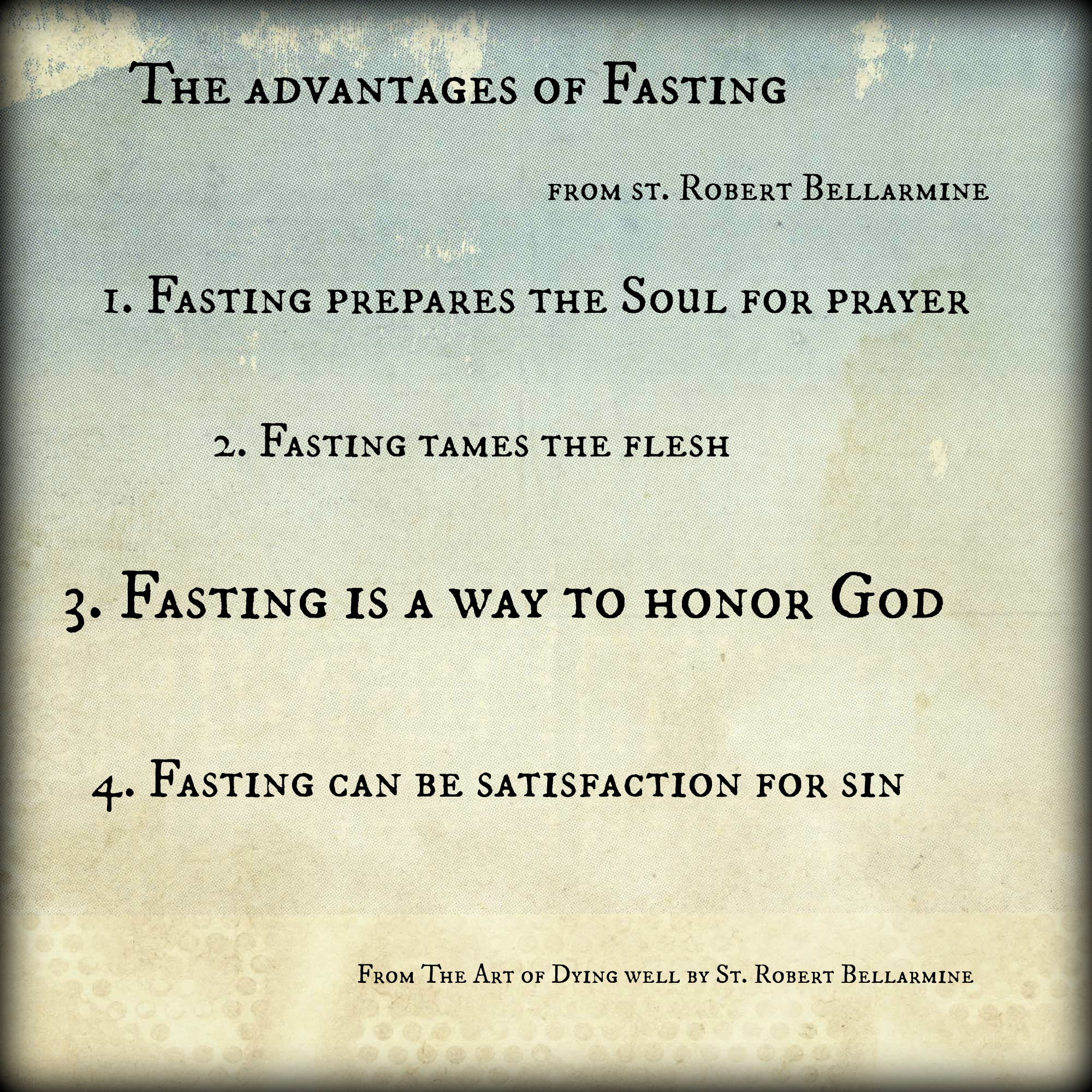(Also a repeat from last year - but it bears repeating...)
Preparing for the Lenten fast? I last posted some thoughts contrasting contemporary paradigms for fasting and the deeper Catholic tradition. No deep thoughts from me today, but just pointing you to St. Robert Bellarmine and his book The Art of Dying Well. (Which, of course, is really about the art of living well.) It's available free online here.
.....
Lastly, It is necessary above all things, if we wish to be saved and to die a good death, diligently to enquire, either by our own reading and meditation, or by consulting holy and learned men, whether our "superfluous" riches can be retained with out sin, or whether we ought of necessity to give them to the poor; and again, what are to be understood by superfluities, and what by necessary goods. It may happen that to some men moderate riches may be superfluous; whilst to others great riches may be absolutely essential. But, since this treatise does not include nor require tedious scholastic questions, I will briefly note passages from Holy Writ and the Fathers, and so end this part of the subject. The passages of Scripture: "You cannot serve both God and mammon." "He that hath two coats, let him give to him that hath none; and he that hath meat, let him do in like manner." And in the 12th chapter of St. Luke it is said of one who had such great riches, that he scarcely knew what to do with them: "Thou fool, this night do they require thy soul of thee." St. Augustine, in the 50th book of his Homilies, and the 7th Homily, explains these words to mean, that the rich man perished for ever, because he made no use of his superfluous riches.
The passages from the Fathers are chiefly these: St. Basil, in his Sermon to the Rich, thus speaks: "And thou, art thou not a robber, because what thou hast received to be given away, thou supposest to be thy own?" And a little farther he continues: "Wherefore, as much as thou art able to give, so much dost thou injure the poor." And St. Ambrose, in his 81st Sermon, says: "What injustice do I commit, if, whilst I do not steal the goods of others, I keep diligently what is my own? impudent word! Dost thou say thy own? What is this? It is no less a crime to steal than it is not to give to the poor out of thy abundance." St. Jerome thus writes in his Epistle to Hedibias: "If you possess more than is necessary for your subsistence, give it away, and thus you will be a creditor." St. John Chrysostom says in his 34th Homily to the people of Antioch: "Do you possess anything of your own? The interest of the poor is entrusted to you, whether the estate is yours by your own just labours, or you have acquired it by inheritance." St. Augustine, in his Tract on the 147th Psalm: "Our superfluous wealth belongs to the poor; when it is not given to them, we possess what we have no right to retain." St. Leo thus speaks: "Temporal goods are given to us by the liberality of God, and He will demand an account of them, for they were committed to us for disposal as well as possession."
And St. Gregory, in the third part of his Pastoral Care: "Those are to be admonished, who, whilst they desire not the goods of others, do not distribute their own; that so they may carefully remember, that as the common origin of all men is from the earth, so also its produce is common to them all: in vain, then, they think themselves innocent, who appropriate to themselves the common gifts of God." St. Bernard, in his Epistle to Henry, archbishop of Sens, saith: "It is ours, for the poor cry out for what you squander; you cruelly take away from us what you spend foolishly." St. Thomas also writes: "The superfluous riches which many possess, by the natural law belong to the support of the poor"; and again: "The Lord requires us to give to the poor not only the tenth part, but all of our superfluous wealth." In fine, the same author, in the fourth book of his "Sentences," asserts that this is the common opinion of all theologians. I add also, that if one be inclined to contend that, taking the strict letter of the law, he is not bound to give his superfluous riches to the poor; he is obliged to do so, at least by the law of charity. It matters little whether we are condemned to hell through want of justice or of charity.
